The Constitutional Court ruled on May 31 that the blanket amnesties issued by former prime minister Vladimír Mečiar as acting president in 1997, covering the kidnapping of the president’s son and the thwarted referendum, are void.
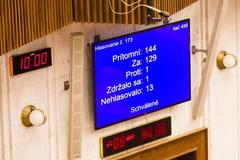
As a result, several prosecution and court processes that have been on hold for almost 20 years will now be re-launched.
1. Lexa may face jail time
Former director of the intelligence service SIS, Ivan Lexa, is one of the 13 people charged with the kidnapping of Michal Kováč Jr in 1995. Many of the persons accused of the kidnapping were in high positions in SIS at that time. The Bratislava III District Court will deal with the case and decide if the case should be reopened, stopped, or whether an inquiry should be made with the European Court of Justice in Luxembourg to determine if it is in line with EU rules, David Lindtner, the court chairman, told the Sme daily.
The court will also open another case, concerning the unlawful destruction of the vehicle that the SIS used to monitor Kovac Jr before the kidnapping. David Lindtner believes the scrapping of amnesties also concerns this case, he told Sme. In this case, Lexa is accused together with four other SIS agents.
Lexa already announced he will turn to the European Court for Human Rights in Strasbourg, with a complaint that the prosecution against him is unlawful. His attorney Marek Para told the Denník N daily that his client was not going to avoid the process and actively defend himself.
Questions that he might possibly leave the country have arisen also because when he was first released in 2000, he left the country and remained in hiding in South Africa, despite the fact that there being criminal prosecution against him in several cases.
In 2002, Lexa was charged with the murder of Róbert Remiáš, under the allegations that the former spy chief had ordered the killing through Bratislava mob boss Miroslav Sýkora, who was in turn gunned down in front of a hotel in February 1997. In 2006, Special Prosecutor Dušan Kováčik withdrew the charges citing a lack of evidence.
The criminal prosecution in the case was re-opened last year, shortly before the 20th anniversary of the murder. Nobody has been charged yet.

2. Mečiar’s interior minister might have to answer for referendum
Gustáv Krajči, interior minister in Mečiar’s government, faced criminal charges for thwarting the 1997 referendum. His case, which was covered by the now scrapped amnesties, will now be re-opened. The criminal complaint against Krajči was filed after the vote in 1997 and the prosecutor pressed charges against him in June 1999, after the then-prime minister Mikuláš Dzurinda attempted to scrap the amnesties.
In June 2000, the case was suspended and archived due to the amnesties. The courts have now re-opened the case. Krajči claims all he wants is for his case to be wrapped up after so many years, and that he is ready to participate in the court process if it is launched, Sme reported.
The thwarted referendum
President Michal Kováč announced the referendum with four questions for May 23, 1997. Gustáv Krajči is suspected of abusing his powers in May 1997 as an interior minister in the third cabinet of former prime minister Vladimír Mečiar by omitting a question on direct presidential elections from a referendum ballot and penning the three questions on NATO membership in a way which purposely cast entrance into the western military alliance in a negative light. The Constitutional Court on May 21 ruled that the question on the presidential election was not in line with the law because it contained an attachment, but did not say the referendum should not take place with four questions. Krajči, however, had the referendum tickets reprinted without the last question. After the vote, the Central Referendum Committee proclaimed the referendum marred and filed a criminal complaint against the minister.
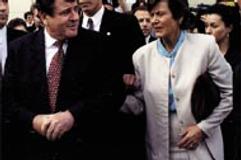
3. Kováč Jr’s case will be dealt with too
Together with Mečiar amnesties, also the individual pardon for Michal Kováč Jr in the Technopol case has been scrapped. President Michal Kováč granted the pardon to his son in 1997, in connection with the charges that the prosecutor pressed against Kováč Jr in 1995. He was suspected of fraud.
As the pardon was granted, the prosecutors will decide on the case based on archive materials. The prosecutors might close the case, in line with the ruling of the court in Munich that closed the proceedings against Kováč Jr in 2000, the Sme daily reported.
Kováč is currently the head of the Slovak economic and cultural office in Taiwan. His attorney, Ján Havlát, is convinced that the case will be closed immediately.
In fact, there has never been any evidence against Kováč Jr in the Technopol case that concerns fictitious trade in clothes. He has officially never had anything to do with the company. The only link between him and the case is the former police officer Peter Krylov who claimed Kováč Jr encouraged him to organise the fraud.
The Technopol case
In the first half of 1992 the Slovak state-run company Technopol paid 2.3 million dollars to the Dutch company Intercommerce for the supply of clothes that have, however, never been imported to Slovakia. Technopol filed a criminal complaint in the Netherlands in 1992. Peter Krylov was detained in Germany as a suspect in September 1992, he pointed to Kováč Jr.’s links to the case. In 1994 Interpol issued an international warrant for Kováč Jr, Marian Kočner and Martin Syč-Milý. President Michal Kováč granted a presidential pardon to his son and other people in the case.




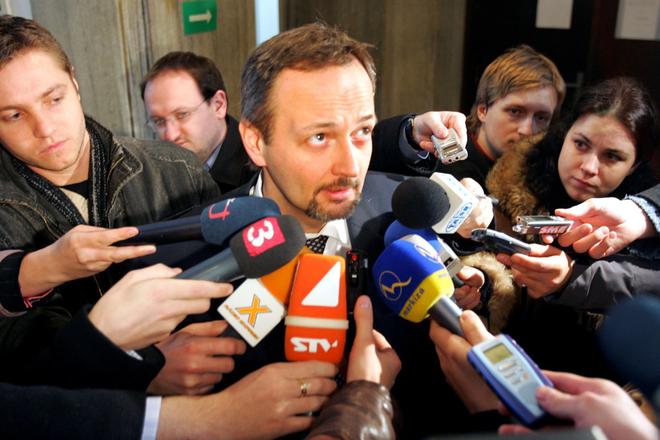 Former SIS director Ivan Lexa (source: Sme archive)
Former SIS director Ivan Lexa (source: Sme archive)
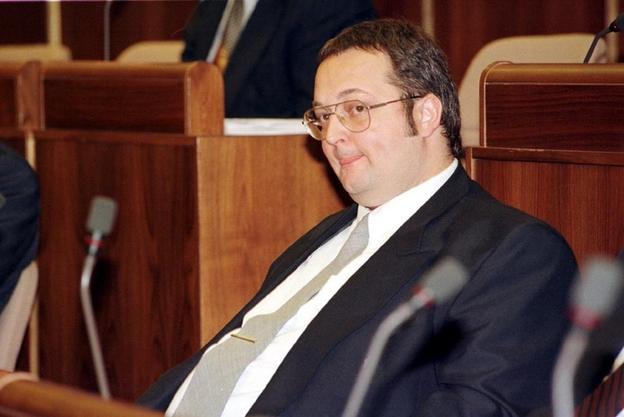 Ivan Lexa in 1998 (source: TASR)
Ivan Lexa in 1998 (source: TASR)
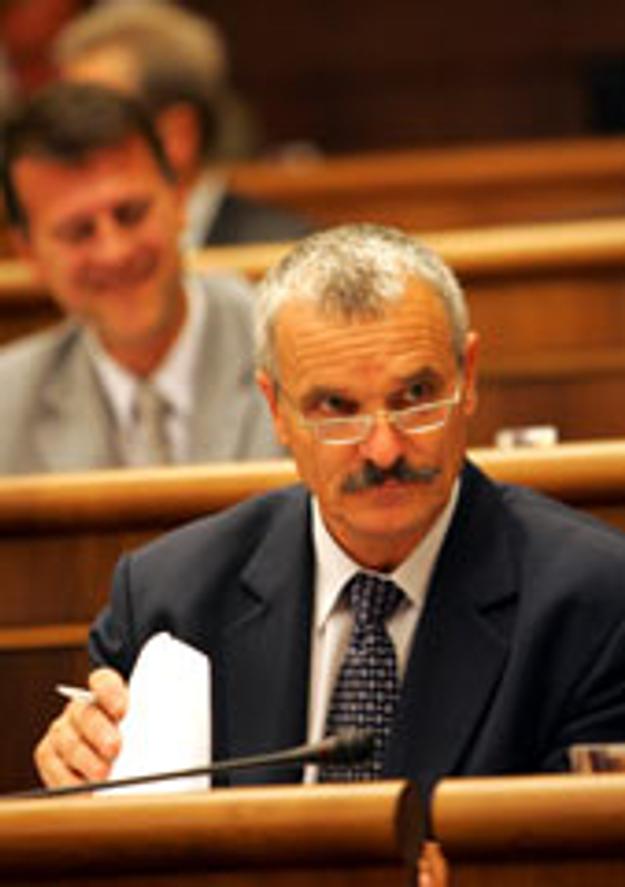 Gustáv Krajči. (source: Sme - Pavol Funtál)
Gustáv Krajči. (source: Sme - Pavol Funtál)